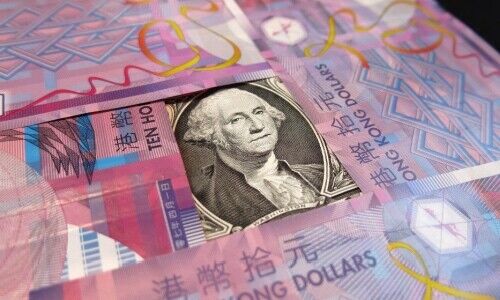Round Two of Hong Kong as Geopolitical Punchbag
It isn’t even Trump 2.0 yet, but the city already finds itself pushing back against US congressional claims that it is becoming a financial crime hub.
This probably would have all happened even if Donald Trump hadn’t been elected. It just wouldn't have been so loud.
The key difference here is context, as the clear victory of the US president-elect a couple of weeks back has turned the general geopolitical constellation worldwide upside down.
A Case of the Nerves
As finews.asia reported on Tuesday, it also gives an entirely new and different interpretation to the letter that US lawmakers penned to the outgoing Treasury Secretary Janet Yellen.
That news is now more than likely to have significantly exacerbated a latent nervousness that 2025 will see a return to a rawer geopolitical environment between the US and China just as the region was getting used to the same old tit-and-tat between both countries.
Major Criminal Hub
Penned with the usual American indignant political hyperbole, it asked the world’s pre-eminent superpower to reconsider ties to the city’s banking sector, given it has become a major hub for money laundering and sanctions evasion.
«Hong Kong has shifted from a trusted global financial center to a critical player in the deepening authoritarian axis of the People’s Republic of China, Iran, Russia and North Korea,» Michigan Republican John Moolenaar and Illinois Democrat Raja Krishnamoorthi in a draft letter cited by «Wall Street Journal».
Sense of Unease
Reading the above and taking it at face value can’t be comforting for anyone working in an international institution in the financial hub, whether expatriate or local.
The Hong Kong government's response late Tuesday seemed to convey that underlying sense of discomfort and unease. They clearly felt compelled to call the letter «malicious slander» based on unfounded allegations.
Long Rebuttal
They then embarked on a point-for-point rebuttal to a draft note that few have actually seen in its entirety or finished form, and almost certainly no one here in the city.
And there were takeaways aplenty on both sides of the geopolitical fence. The Hong Kong government trotted out its usual statement that it fully enforces UN sanctions while conveniently forgetting that it is almost impossible to impose new ones given that the opposing sides sit as permanent members on the security council happily batting anything and everything down with vetos.
Not Unilateral
It also mentions that it does not implement unilateral sanctions – although you can’t really consider the ones imposed by the US and the EU as all that unilateral anymore if most countries in the G-7 have decided to follow them. At a minimum, they should be considered at least bi-, tri-, or even quadrilateral.
For the US part, the lawmakers questioned whether the «cozy» banking relationship with Hong Kong should be kept up, while not mentioning the city’s dollar peg, likely because it remains a sensitive matter.
Ramifications Unclear
The truth is that the Treasury could limit the HKMA from settling dollars overnight if it was really serious about things, but the ramifications of that move would be unclear. It would bring us right back to 2020 when the idea was last discussed, as can be seen from an «A Jazeera« article then.
The reason it is so sensitive is that the city’s hub is a significant conduit for US dollars abroad and even the most diehard Trump 2.0 DJIA-afficionados are probably not all that interested in triggering a GFC 2.0 on their watch.
Getting Boilerplate
The rest of Hong Kong’s rebuttals were boilerplate. Yes, it prevented vessels under UN sanctions (i.e. really only North Korea as no one else has the ships) and it was recognized by the FATF for its compliance with international standards.
It also maintained it had an independent judiciary and was entitled to implement the National Security Law in 2020 as other jurisdictions did, including the US.
Substantial Interests
It ended it all with a veiled threat of the substantial economic interests the US held in Hong Kong, including a trade surplus of $270 billion in the last decade and over 1,200 American companies operating here.
But this kind of point-for-point rebuttal isn’t doing anyone any favors, and it is only setting up the city to again become a geopolitical punching bag starting in late January, almost certainly foreshadowing a new round of geopolitical catcalling between the US and China.




























